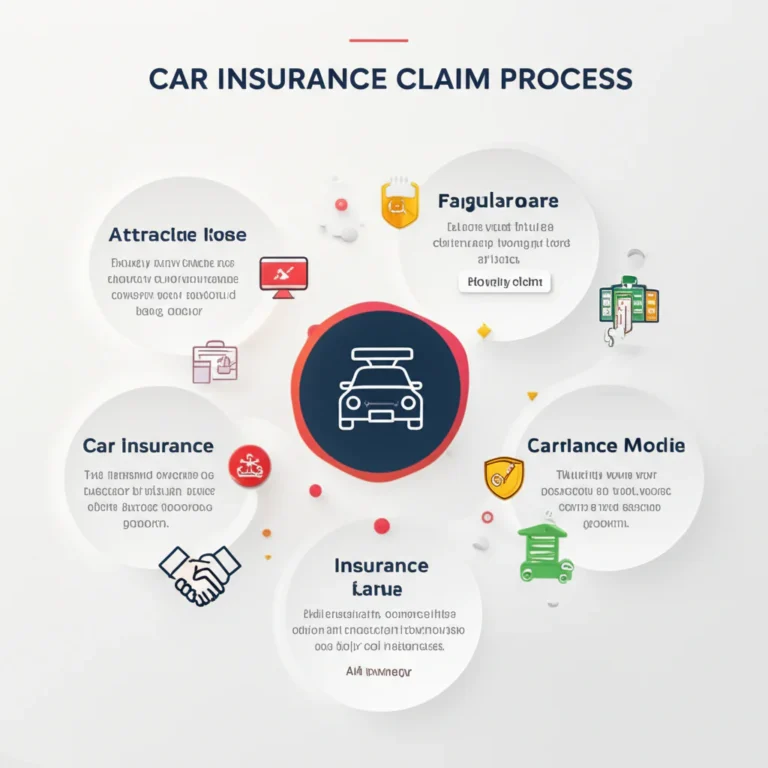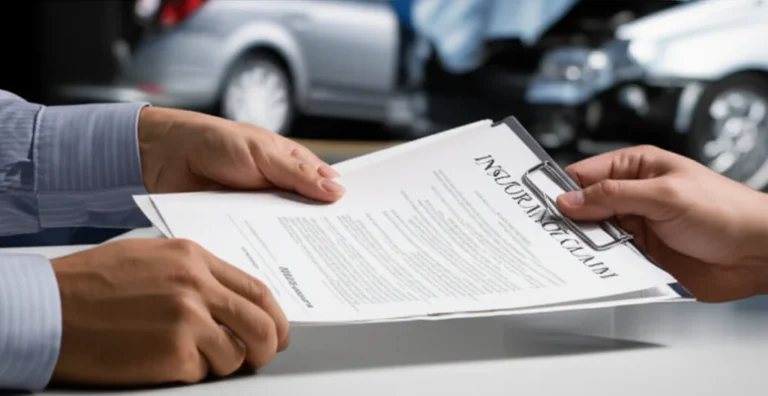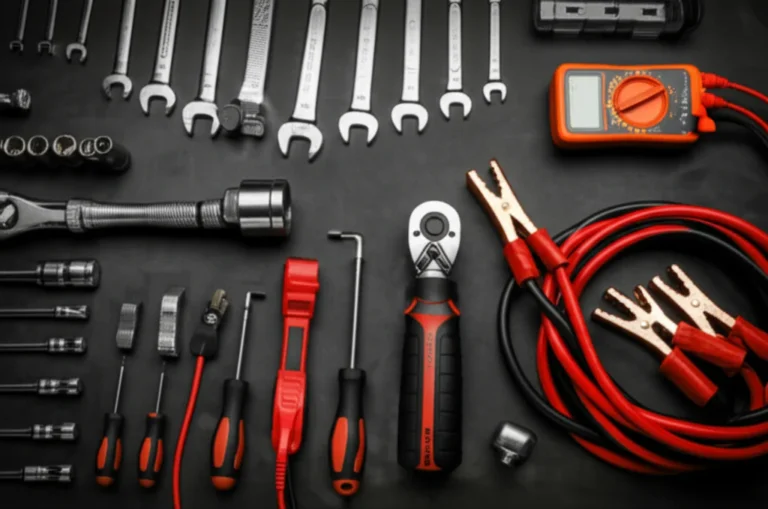Support our educational content for free when you purchase through links on our site. Learn more
How to Find 12 Reliable Mechanics for Your Car Repairs (2025) 🔧
Picture this: you’re cruising down the highway, and suddenly your dashboard lights up like a Christmas tree. Panic sets in—who do you trust to fix your car without draining your wallet or leaving you stranded? Finding a reliable mechanic can feel like searching for a needle in a haystack, especially with today’s complex vehicles. But fear not! We’ve scoured the automotive landscape to bring you 12 expert-tested ways to find a trustworthy mechanic who’ll treat your ride like royalty.
Did you know the average car on U.S. roads is now over 12 years old? That means more of us need dependable repairs and maintenance than ever before. In this guide, we’ll reveal insider tips—from decoding certifications and leveraging online reviews to asking the right questions and building lasting relationships. Plus, we’ll help you weigh the pros and cons of dealerships versus independent shops. Ready to become a savvy car owner who never gets hoodwinked again? Let’s dive in!
Key Takeaways
- Look for ASE-certified mechanics and shops with transparent communication to ensure quality and trustworthiness.
- Use online reviews and personal referrals to vet potential repair shops thoroughly.
- Start with small maintenance jobs to test a mechanic’s skills and service before committing to major repairs.
- Understand the difference between dealership and independent shops to choose what fits your car and budget best.
- Ask the right questions upfront about estimates, warranties, and parts to avoid surprises.
- Build a long-term relationship with your trusted mechanic for smoother, safer rides and better service.
Ready to find your perfect mechanic match? Check out ASE-certified professionals and top-rated shops on:
Table of Contents
- ⚡️ Quick Tips and Facts
- Understanding Your Ride: The Evolving Landscape of Car Care 🚗
- Steering Clear of Trouble: The Hidden Costs of Unreliable Auto Repair Shops 💸
- Decoding Trust: What Makes a Top-Tier Car Mechanic Stand Out? ✅
- Navigating the Digital Highway: Why Online Reviews and Resources Are Crucial 💻
- The Power of Word-of-Mouth: Don’t Underestimate Personal Referrals 🤝
- Your Mechanic Interview: Asking the Right Questions Before the Wrench Turns ❓
- Prevention is Key: The Unsung Heroism of Regular Car Maintenance 🗓️
- Dealership vs. Independent Shop: Which is Right for You? 🤔
- Building a Lasting Relationship with Your Trusted Mechanic ❤️
- What to Do When Things Go Wrong: Handling Disputes and Dissatisfaction 😡
- Conclusion 🏁
- Recommended Links 🔗
- FAQ ❓
- Reference Links 📚
Here is the body of the article, written according to your instructions.
⚡️ Quick Tips and Facts
Welcome, fellow road warriors! Before we dive deep into the nitty-gritty of finding a mechanical wizard for your four-wheeled companion, let’s get you up to speed with some quick hits. Think of this as your pre-flight checklist before the big journey. Finding a trustworthy mechanic is a crucial part of vehicle ownership, and our comprehensive guide to car repairs is the perfect starting point.
| Quick Fact 💡 | The Nitty-Gritty Details 📝 |
|---|---|
| Certification is Key | Always look for shops with technicians certified by the National Institute for Automotive Service Excellence (ASE). This is the gold standard, folks! |
| Word-of-Mouth Wins | A recommendation from a trusted friend or family member is often more valuable than any online review. |
| Start Small | Test a new shop with a minor job, like an oil change or tire rotation. It’s like a first date before you commit to a long-term relationship. |
| Get it in Writing | Never agree to a repair without a detailed, written estimate. This protects you from surprise charges later. |
| Don’t Fear the Dealer | While often perceived as more expensive, dealership service centers have specialized knowledge and tools for your specific make and model. |
| Independents Shine | A good independent shop can offer more personalized service and potentially lower labor rates. |
| Check the BBB | The Better Business Bureau (BBB) is your friend for checking a shop’s complaint history and overall rating. |
Did you know? The average age of cars and light trucks on U.S. roads has climbed to a record 12.5 years. This means more of us are relying on quality repairs to keep our trusty steeds running smoothly. So, how do you find someone you can trust with your “investment, a lifeline, and a trusted companion”? Let’s find out!
Understanding Your Ride: The Evolving Landscape of Car Care 🚗
Remember the good old days when you could pop the hood, identify most of the parts, and maybe even tackle a few repairs with a basic socket set? Yeah, those days are fading faster than a sunset on the open highway. Today’s vehicles are less like simple machines and more like supercomputers on wheels.
From advanced driver-assistance systems (ADAS) like adaptive cruise control to complex infotainment centers and hybrid powertrains, the technology under the hood (and in the dashboard) is evolving at lightning speed. This is fantastic for safety and convenience, but it presents a new challenge: finding a mechanic who has kept up. The wrench-turner of yesterday has had to become the highly skilled, software-savvy technician of today. This evolution is a hot topic in our Auto Industry News section.
This technological leap means that the person working on your car needs more than just mechanical know-how. They need to be proficient with diagnostic computers, understand intricate electrical systems, and be committed to continuous training. It’s a whole new ballgame, and it’s why finding the right mechanic is more critical than ever.
Steering Clear of Trouble: The Hidden Costs of Unreliable Auto Repair Shops 💸
We’ve all heard the horror stories. A simple brake job that somehow balloons into a four-figure nightmare. A mysterious “check engine” light that three different shops can’t seem to diagnose correctly. Choosing the wrong mechanic isn’t just an inconvenience; it’s a gamble with your wallet and your safety.
An unreliable shop can lead to a cascade of problems:
- ❌ Increased Wear and Tear: Incorrect repairs or the use of shoddy parts can cause other components to fail prematurely.
- ❌ Frequent Breakdowns: A “fix” that doesn’t actually address the root cause will have you back on the side of the road in no time.
- ❌ Skyrocketing Costs: You might end up paying multiple times for the same issue or for unnecessary repairs recommended by a dishonest technician.
- ❌ Major Safety Risks: As Christian Brothers Automotive points out, a lack of transparency can leave you unaware of your vehicle’s actual condition, leading to “potential safety issues.” Imagine your brakes failing because of a botched job—it’s a terrifying thought.
The stress and financial strain of dealing with a bad mechanic can be immense. But don’t worry, we’re here to equip you with the knowledge to spot the red flags and find a true automotive ally.
Decoding Trust: What Makes a Top-Tier Car Mechanic Stand Out? ✅
So, what separates the automotive artists from the parts-swapping hacks? It’s a combination of tangible qualifications and intangible qualities. Here’s the Car Brands™ breakdown of what to look for.
Certifications and Credentials: The Mark of a Pro 🎓
A reputable shop proudly displays its credentials. The most important one to look for in the United States is the ASE (Automotive Service Excellence) certification.
- What it is: ASE certification is a rigorous testing and experience-based qualification that demonstrates a technician’s competence in specific areas of auto repair.
- Why it matters: It shows a commitment to professionalism and staying current with the latest automotive technology.
- Look for the Blue Seal: The ASE blue seal logo is a sign that the shop employs certified professionals. Don’t be shy about asking to see a technician’s specific certifications!
Transparency and Communication: No Hidden Surprises 🗣️
A great mechanic is a great communicator. They should be able to explain the problem with your car in terms you can understand, without being condescending.
Key signs of transparency:
- ✅ They provide a clear, written estimate before any work begins.
- ✅ They are willing to show you the old parts they replaced.
- ✅ They call you for approval before performing any additional work that wasn’t on the original estimate.
- ✅ They patiently answer all your questions. As one source notes, this “not only tests their knowledge and transparency but also gives you a sense of their communication style.”
Facility and Equipment: A Sign of Professionalism 🛠️
Take a look around the shop. Is it reasonably clean and organized? A chaotic, dirty workspace can be a red flag. Modern cars require modern diagnostic equipment. A shop that has invested in up-to-date tools and technology is more likely to diagnose and repair your vehicle correctly the first time.
Customer Service Excellence: Beyond the Repair Bay 🤗
How are you treated from the moment you walk in the door or call on the phone? A friendly, respectful, and helpful attitude goes a long way. Do they offer amenities like a comfortable waiting area, Wi-Fi, or a shuttle service? These aren’t just perks; they’re indicators of a business that values its customers.
Navigating the Digital Highway: Why Online Reviews and Resources Are Crucial 💻
In today’s digital age, a wealth of information is right at your fingertips. Leveraging online resources is a critical step in vetting potential mechanics.
Leveraging Google, Yelp, and Beyond 🌟
Platforms like Google Reviews, Yelp, and even the Car Talk Community forums are treasure troves of customer experiences. When sifting through reviews, look for patterns.
- Look for consistency: Are there repeated praises for honesty, fair pricing, and quality work?
- Read the details: Vague one-star or five-star reviews aren’t as helpful as those that describe a specific experience.
- Check the dates: Recent reviews are more relevant.
- Mind the response: Pay attention to how the business owner responds to negative reviews. A professional and constructive response is a good sign. Remember, “a few negative reviews are common— it’s consistent poor feedback that’s a red flag.”
Checking with the Better Business Bureau (BBB) 🛡️
Before you commit, do a quick search for the shop on the Better Business Bureau website. The BBB provides a rating based on factors like complaint history, transparency, and time in business. It’s an excellent way to see if there are any unresolved disputes or a pattern of customer dissatisfaction.
Exploring Automotive Forums and Social Media Groups 💬
Do you own a specific type of car, like a Subaru or a Ford Mustang? There’s likely an online forum or Facebook group dedicated to it. These communities can be an incredible resource for finding mechanics who specialize in your particular vehicle. Members are often passionate and eager to share their recommendations for trusted local shops.
The Power of Word-of-Mouth: Don’t Underestimate Personal Referrals 🤝
While online research is powerful, never underestimate the value of a good old-fashioned recommendation. Ask friends, family members, and coworkers who they trust with their vehicles.
A personal referral comes with a level of trust that an anonymous online review can’t match. Your friend can give you the full scoop: how the shop communicates, whether their estimates are accurate, and how they handle any issues that arise. This is especially helpful if they drive a similar car to yours. Who do they trust with their Honda or their Chevrolet? Their experience is your gain!
Your Mechanic Interview: Asking the Right Questions Before the Wrench Turns ❓
Think of your first interaction with a new mechanic as an interview—you’re the one doing the hiring! Being prepared with the right questions can save you a lot of headaches down the road.
Understanding Estimates and Diagnostic Fees 💰
- “Do you provide a written estimate before starting work?” (The answer should always be YES.)
- “Is there a fee for diagnostic work?” (This is common, but you should know the cost upfront.)
- “How will you contact me if the final cost exceeds the estimate?” (They should always get your approval for additional charges.)
Warranty on Parts and Labor: Your Peace of Mind 📜
- “What kind of warranty do you offer on your repairs?”
- “Does the warranty cover both parts and labor?”
- “How long does the warranty last?”
A reputable shop will stand behind its work with a solid warranty. For example, some top-tier shops like Christian Brothers Automotive offer a “Nice Difference Warranty” that provides significant coverage.
Parts Sourcing: OEM vs. Aftermarket ⚙️
- “Do you use OEM (Original Equipment Manufacturer) parts or aftermarket parts?”
- A good mechanic will explain the pros and cons of each and let you make an informed choice.
Timeline and Communication During Repairs ⏰
- “What is the estimated timeframe for this repair?”
- “How will you keep me updated on the progress?” (e.g., phone call, text message)
Knowing what to expect helps manage your own schedule and reduces the stress of being without your vehicle.
Prevention is Key: The Unsung Heroism of Regular Car Maintenance 🗓️
The best way to avoid costly, unexpected repairs is to not need them in the first place! Building a relationship with a mechanic isn’t just for when your car breaks down; it’s about proactive care. Regular maintenance is the single most important thing you can do to extend the life of your vehicle and save money in the long run.
The Value of Routine Oil Changes and Fluid Checks 💧
Think of engine oil as the lifeblood of your car. It lubricates moving parts, cleans away deposits, and helps dissipate heat. Neglecting oil changes is a surefire way to cause catastrophic engine damage. Following your manufacturer’s recommended service intervals (found in your owner’s manual) is crucial. A good mechanic will also check and top off other vital fluids like coolant, brake fluid, and transmission fluid during these visits.
Tire Care and Rotations: Extending Your Ride’s Life 🚗
Your tires are your only connection to the road. Keeping them properly inflated and rotating them regularly (typically every 5,000 to 7,500 miles) ensures they wear evenly, which extends their life and improves your car’s handling and fuel efficiency. This is a simple, inexpensive service that pays for itself.
Brake Inspections and Replacements: Safety First! 🛑
This one is a no-brainer. Your brakes are your most important safety feature. Having them inspected regularly allows a technician to spot worn pads or rotors before they become a serious problem. Don’t wait until you hear grinding noises to get your brakes checked!
Starting a relationship with a new shop by entrusting them with these smaller, routine jobs is a fantastic strategy. It allows you to “gauge their skills, timeliness, and communication before committing to larger repairs.”
Dealership vs. Independent Shop: Which is Right for You? 🤔
One of the biggest questions in car care is where to go: the dealership where you bought the car or a local independent shop? Both have their pros and cons, and the right choice often depends on your specific needs. This is a frequent topic in our Car Brand Comparisons.
| Feature | Dealership Service Center | Independent Repair Shop |
|---|---|---|
| Specialization | Experts on one specific brand (e.g., Mercedes-Benz, Hyundai). | Often work on a wide variety of makes and models. |
| Technicians | Factory-trained and certified for that specific brand. | May have broad experience and ASE certifications. |
| Equipment | Have brand-specific diagnostic tools and equipment. | May have more general diagnostic equipment. |
| Parts | Primarily use OEM parts. | Often offer a choice between OEM and aftermarket parts. |
| Cost | Labor rates and parts costs are typically higher. | Labor rates are often lower, providing better value. |
| Customer Service | Can feel more corporate and less personal. | Often build strong, personal relationships with customers. |
| Warranty Work | The only place to get repairs covered by the factory warranty. | Cannot perform factory warranty repairs. |
The Dealership Advantage: Specialized Knowledge and Equipment 🏭
For a newer car, especially one that’s still under warranty, the dealership is often the best choice. They have the most up-to-date training and the proprietary tools required to work on the latest models. If you have a complex, brand-specific issue, their specialized expertise can be invaluable.
The Independent Shop Appeal: Personal Service and Value 🛠️
For older cars or routine maintenance, a trusted independent shop can be a fantastic option. You’re more likely to speak directly with the technician working on your car and build a long-term relationship. They can also offer more flexibility with part choices, which can save you money. The key is finding a great one—which is what this whole guide is about!
Building a Lasting Relationship with Your Trusted Mechanic ❤️
Finding a great mechanic is like finding a great doctor. Once you’ve found one, you want to stick with them. A long-term relationship is beneficial for both of you.
- They know your car’s history: A mechanic who has worked on your car for years will know its quirks and service history, which can lead to faster and more accurate diagnoses. You can explore more about specific vehicle histories in our Car Brand Histories section.
- Trust is established: Over time, you’ll build a level of trust that eliminates the stress and second-guessing that often comes with car repairs.
- Potential for perks: Loyal customers may get preferential treatment, like being squeezed in for an emergency repair or getting helpful advice over the phone.
Communicate openly, pay your bills on time, and show your appreciation. A little kindness can go a long way in fostering a positive, long-lasting relationship with your automotive caregiver.
What to Do When Things Go Wrong: Handling Disputes and Dissatisfaction 😡
Even with the best preparation, disputes can happen. If you’re unhappy with a repair, here’s how to handle it:
- Stay Calm and Document Everything: Keep all your paperwork, including estimates, invoices, and warranty information. Take notes of who you spoke to and when.
- Speak with the Service Manager or Owner: Approach the shop calmly and professionally. Clearly explain the issue and what you would like them to do to resolve it. Give them a fair chance to make it right.
- Get a Second Opinion: If you can’t reach a resolution, take your car to another reputable mechanic for an independent assessment of the work that was done. Get their opinion in writing.
- Contact the Better Business Bureau (BBB): The BBB can help mediate disputes between consumers and businesses.
- File a Complaint with Your State’s Attorney General: Most states have a consumer protection division that handles complaints against businesses.
- Consider Small Claims Court: As a last resort for significant financial losses, you can file a lawsuit in small claims court.
Hopefully, you’ll never need to take these steps, but it’s always good to know your options.
Conclusion 🏁
Well, we’ve taken quite the scenic route through the world of car mechanics, haven’t we? From understanding the evolving complexity of modern vehicles to decoding the trust signals that separate the pros from the cons, you’re now armed with the ultimate roadmap to finding a reliable mechanic for your car repairs and maintenance needs.
Remember, finding a trustworthy mechanic is about more than just fixing your car—it’s about building a partnership that keeps your vehicle safe, efficient, and road-ready for years to come. Whether you choose a dealership with its brand-specific expertise or an independent shop with personalized service, the key is transparency, communication, and proven competence.
We also tackled the importance of certifications like ASE, the power of online reviews and personal referrals, and the value of starting small with routine maintenance to test the waters. And if things ever go sideways, you now know how to handle disputes calmly and effectively.
So next time your check engine light flickers or it’s time for that oil change, you won’t just be hoping for the best—you’ll know exactly where to go and what to ask. Your car deserves nothing less than the best, and so do you!
Ready to hit the road with confidence? Let’s keep those wheels turning smoothly!
Recommended Links 🔗
Looking to find trusted mechanics or shop for parts and services? Check out these helpful platforms:
-
👉 Shop ASE-Certified Mechanics on:
-
Find Dealership Service Centers for Popular Brands:
-
Explore Independent Auto Repair Shops:
-
Check Shop Ratings and Complaints:
FAQ ❓
What are the best ways to verify a mechanic’s credentials?
Look for ASE Certification: The National Institute for Automotive Service Excellence (ASE) certifies technicians who pass rigorous exams and have relevant work experience. Shops employing ASE-certified mechanics often display the blue ASE seal.
Ask for Training Records: Some shops provide information about ongoing training and manufacturer-specific certifications.
Check with Local Licensing Authorities: Depending on your state, mechanics may need to be licensed or registered.
Use Online Resources: Websites like the ASE official site and the Better Business Bureau can help verify credentials and reputation.
How can I read reviews to choose a trustworthy auto repair shop?
Look for Patterns: One or two bad reviews aren’t deal-breakers, but consistent complaints about the same issues (e.g., overcharging, poor communication) are red flags.
Read Detailed Reviews: Reviews that describe specific experiences give better insight than vague comments.
Check Responses: Shops that respond professionally to negative reviews show accountability.
Consider Recency: Recent reviews reflect the current state of the business better than older ones.
Use Multiple Platforms: Don’t rely on just one site; cross-reference Google, Yelp, Angie’s List, and automotive forums.
Read more about “What Car Brands Have the Cheapest Parts? Top 9 Revealed (2025) 🔧”
What questions should I ask a mechanic before hiring them?
- Do you provide a written estimate before starting work?
- Are your technicians ASE-certified or factory-trained?
- What kind of warranty do you offer on parts and labor?
- Do you use OEM or aftermarket parts?
- How do you communicate updates during repairs?
- Is there a diagnostic fee, and will it be applied to the repair cost?
- Can I see the old parts after the repair?
How do I know if a mechanic is charging fair prices for repairs?
Get Multiple Estimates: Comparing quotes from different shops can help you gauge market rates.
Understand the Breakdown: Ask for labor and parts costs separately. Labor rates vary by region and shop type.
Check Online Pricing Guides: Websites like Edmunds and RepairPal provide average repair costs for common services.
Beware of Extremely Low Prices: If a quote seems too good to be true, it might be cutting corners or using inferior parts.
Read more about “What Is the Best Car Statistically? Top 8 Winners Revealed! 🚗 (2025)”
Are there certifications I should look for in a reliable mechanic?
Yes! The most recognized certification in the U.S. is the ASE certification. Additionally, some mechanics have manufacturer-specific certifications (e.g., Toyota, Ford, BMW) indicating specialized training on those brands. These certifications ensure the mechanic is knowledgeable about the latest technologies and repair procedures.
Read more about “15 Essential Car Repairs You Must Know in 2025 🚗”
What are the signs of a good mechanic versus a bad one?
Good Mechanic Signs:
- ASE or manufacturer certifications
- Transparent, written estimates
- Clear communication and willingness to explain repairs
- Positive reviews and personal referrals
- Clean, organized shop with modern equipment
- Offers warranties on parts and labor
Bad Mechanic Signs:
- Refuses to provide written estimates
- Uses high-pressure sales tactics for unnecessary repairs
- Poor or no communication during repairs
- Negative reviews with unresolved complaints
- Dirty, disorganized shop
- No warranty or vague promises
How can I maintain my car to reduce the need for frequent repairs?
- Follow your vehicle’s recommended maintenance schedule (oil changes, fluid checks, tire rotations).
- Address small issues promptly before they become big problems.
- Keep tires properly inflated and aligned.
- Use quality parts and fluids recommended by the manufacturer.
- Regularly inspect brakes, belts, and hoses.
- Build a relationship with a trusted mechanic for routine check-ups.
Reference Links 📚
For further reading and verification, check out these reputable sources:
- How to Find a High-Quality Car Repair Shop via @ConsumerReports
- ASE Certification Official Site
- Better Business Bureau (BBB)
- Christian Brothers Automotive – Trusted Auto Repair
- Angie’s List Auto Repair Reviews
- Edmunds Car Repair Cost Guide
- RepairPal – Fair Price Estimates
- Toyota Service & Maintenance
- Ford Service
- Honda Service & Maintenance
- BMW Service
We hope this guide has turbocharged your confidence in finding the perfect mechanic for your car’s needs. Safe travels and happy wrenching! 🚗🔧









